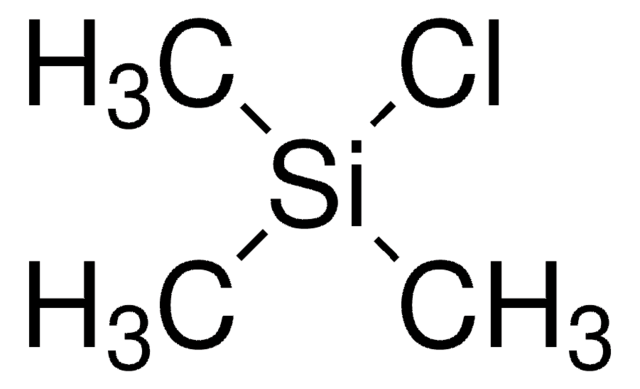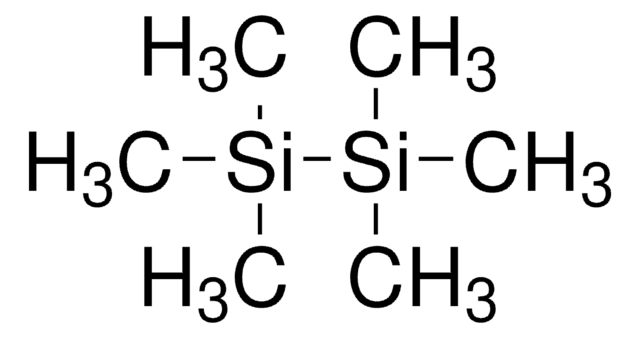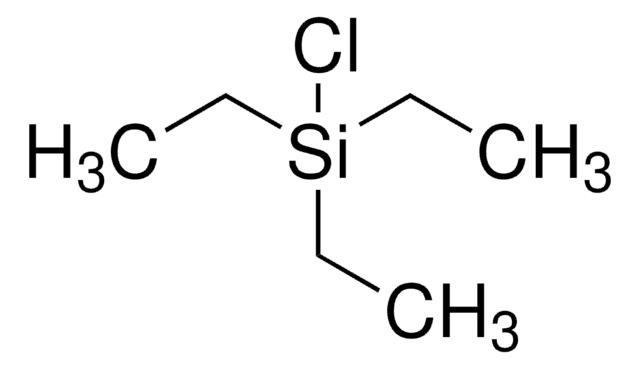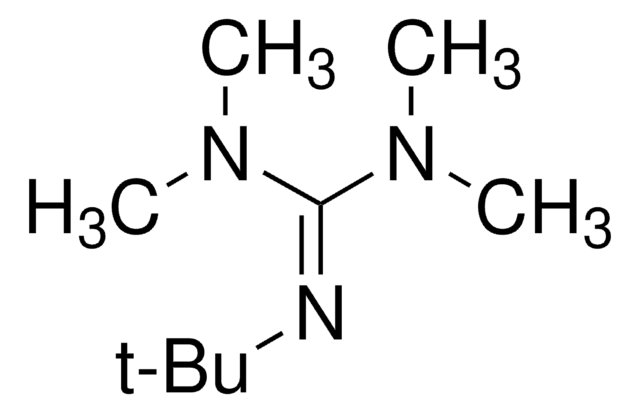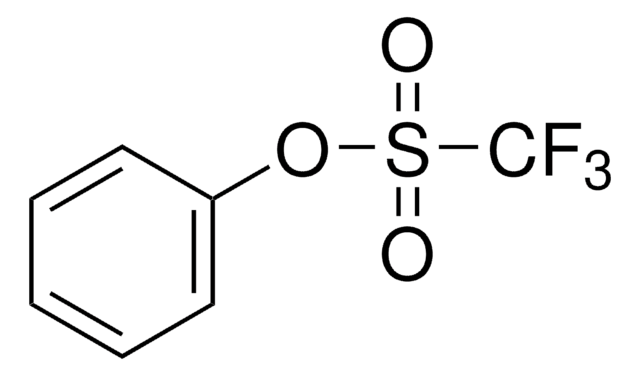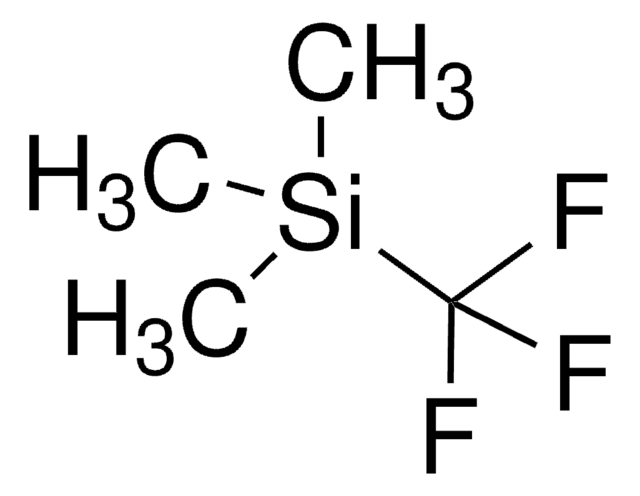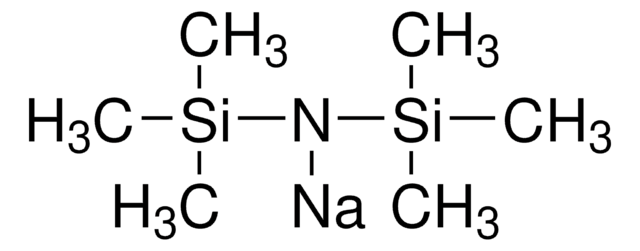440191
Hexamethyldisilazane
reagent grade, ≥99%
Synonym(s):
Bis(trimethylsilyl)amine, HMDS
About This Item
Recommended Products
grade
reagent grade
Assay
≥99%
form
liquid
refractive index
n20/D 1.407 (lit.)
bp
125 °C (lit.)
SMILES string
C[Si](C)(C)N[Si](C)(C)C
InChI
1S/C6H19NSi2/c1-8(2,3)7-9(4,5)6/h7H,1-6H3
InChI key
FFUAGWLWBBFQJT-UHFFFAOYSA-N
Looking for similar products? Visit Product Comparison Guide
General description
Application
- As a silylating agent in the trimethylsilylation of alcohols under nearly neutral reaction conditions.
- To control the molecular weights of polypeptides during ring-opening polymerization of α-amino acid N-carboxyanhydrides.
- To fabricate silicon carbonitride thin films by plasma-enhanced CVD.
- For specimen preparation for scanning electron microscopy and the preparation of trimethylsilyl ethers from hydroxy compounds.
Features and Benefits
- High chemicalstability and low molecular weight
- Nontoxic andcost-effective reagent
- Ammonia is theonly byproduct generated during silylation
- Silylationreaction using HDMS is nearly neutral and does not need any precaution
Signal Word
Danger
Hazard Statements
Precautionary Statements
Hazard Classifications
Acute Tox. 3 Dermal - Acute Tox. 4 Inhalation - Acute Tox. 4 Oral - Aquatic Chronic 3 - Flam. Liq. 2
Storage Class Code
3 - Flammable liquids
WGK
WGK 2
Flash Point(F)
52.5 °F - closed cup
Flash Point(C)
11.4 °C - closed cup
Personal Protective Equipment
Choose from one of the most recent versions:
Already Own This Product?
Find documentation for the products that you have recently purchased in the Document Library.
Customers Also Viewed
with hexamethyldisilazane (HMDS) catalysed by in situ generated I2
using OxoneR /KI or cerium ammonium nitrate (CAN)/KI systems
under mild conditions
Articles
atomic layer deposition (ALD), microelectronics, Mo:Al2O3 films, nanocomposite coating, photovoltaics, semiconductor devices, W:Al2O3 films, composite films, layer-by-layer
A hard disk drive (HDD) is a data storage device that stores digital information by magnetizing nanosized magnets on flat disks and retrieves data by sensing the resulting magnetic field.
Spin-based electronic (spintronic) devices offer significant improvement to the limits of conventional charge-based memory and logic devices which suffer from high power usage, leakage current, performance saturation, and device complexity.
The properties of many devices are limited by the intrinsic properties of the materials that compose them.
Our team of scientists has experience in all areas of research including Life Science, Material Science, Chemical Synthesis, Chromatography, Analytical and many others.
Contact Technical Service